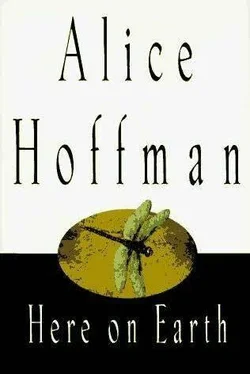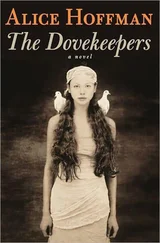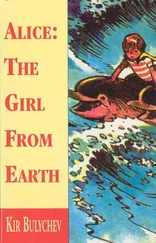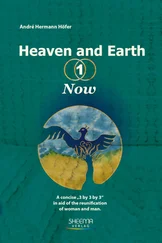Alice Hoffman - Here On Earth
Здесь есть возможность читать онлайн «Alice Hoffman - Here On Earth» весь текст электронной книги совершенно бесплатно (целиком полную версию без сокращений). В некоторых случаях можно слушать аудио, скачать через торрент в формате fb2 и присутствует краткое содержание. Жанр: Современная проза, на английском языке. Описание произведения, (предисловие) а так же отзывы посетителей доступны на портале библиотеки ЛибКат.
- Название:Here On Earth
- Автор:
- Жанр:
- Год:неизвестен
- ISBN:нет данных
- Рейтинг книги:5 / 5. Голосов: 1
-
Избранное:Добавить в избранное
- Отзывы:
-
Ваша оценка:
- 100
- 1
- 2
- 3
- 4
- 5
Here On Earth: краткое содержание, описание и аннотация
Предлагаем к чтению аннотацию, описание, краткое содержание или предисловие (зависит от того, что написал сам автор книги «Here On Earth»). Если вы не нашли необходимую информацию о книге — напишите в комментариях, мы постараемся отыскать её.
Here On Earth — читать онлайн бесплатно полную книгу (весь текст) целиком
Ниже представлен текст книги, разбитый по страницам. Система сохранения места последней прочитанной страницы, позволяет с удобством читать онлайн бесплатно книгу «Here On Earth», без необходимости каждый раз заново искать на чём Вы остановились. Поставьте закладку, и сможете в любой момент перейти на страницу, на которой закончили чтение.
Интервал:
Закладка:
If she’d really wanted to see him, of course, she could have merely pushed the door open, since the Coward never bothers to lock it. Probably, his caller had heard his dreadful history. Not even the charlatan at last summer’s circus fair outside Town Hall would read his fortune. That’s how bad his past has been, and his future looks no better. People used to say the Coward fed his dog gunpowder, to make it more vicious, and this was the reason everyone avoided the Marshes. But that dog died years ago, of arthritis and old age, and the Marshes are still unknown territory for most local residents. Anyone who goes there goes at his own risk.
Of course, twelve-year-old boys are always looking for trouble, and teenagers need their thrills. Sometimes there are groups daring enough to make their way through the muck and the reeds. They pitch winter apples and stones at the roof of his house, defying the Coward to come chase them away, but he never does, and he never will. Even on nights when stones are thrown, the Marshes are silent, and that silence is scary enough to chase off most unwanted visitors.
To the children in the village, who whisper the Coward’s story at slumber parties, his is a cautionary tale about what can happen to spoiled boys who think they have everything. Greedy, thoughtless habits take you down a road you can’t get off, even when you’ve seen the error of your ways. Before you know it, you’ve grown up to be a man who doesn’t give a damn about anyone but himself, and then your fortune is your own affair, and hopeless is probably the best you can ask for.
The Coward knows all this-it’s the reason he has never fought for his son. He doesn’t deserve the boy any more than he deserves heat or light or hope. If the Coward happens to be out wandering on a starless night, he avoids Fox Hill, and if he ever comes within a mile of Guardian Farm’s property lines he begins to shake and he’s unable to stop until he’s safe in his house with a drink halfway down his throat.
Although he can barely remember it now-his memory is foggy, and he’s thankful for that-there was an occasion when he went to search out his son. One look, that was all he wanted. A minute; a single word. It was pathetic, really, and he knew it even at the time. He crept up to the schoolyard for a peek at Hank, but five years had passed since he’d last seen the boy and among all those children out for recess, the Coward could not tell which one was his. Unlike the common duck, which can distinguish its young from another’s in a crowded pond or stream, unlike a swan, who will kill for the sake of its hatchling, the Coward had forgotten his own son’s features. This, of course, only made him despise himself more. He is, after all, called the Coward for good reason.
In the past years, his single companion was his old dog, whom he still misses-a wretched boxer someone had set out to drown in a burlap bag. The drowning was somehow bungled, and when the Coward dragged the bag out of the marsh at low tide, there was one dead puppy inside, and another live one who was, from that moment on, forever grateful. Not that the Coward didn’t try to dissuade the misguided beast. He could throw a frying pan at the poor dog’s head, and it would insist upon licking his hand. He wishes he still had that dog, although he is convinced it was the stupidest creature on earth, foolish enough to misjudge its own master and believe him worthy of loyalty.
Though it now seems ridiculous, the Coward once considered himself lucky. He had inherited all his father owned, and was free to do as he pleased. The only dark spot in his life had been Hollis, and he always resented his father for bringing this false brother home. But Hollis, who had recently returned to the village, was nothing to Alan anymore. Why, Alan could pass him on the street and not even feel compelled to acknowledge Hollis’s existence. He had, after all, far better things to think about. His marriage, for one. Julie, the woman who had become his wife, was said to be the sweetest girl in town. There was something peaceful about her, as if snow had settled inside her soul. Often, she slept fourteen hours straight, and when she woke there was a smile on her lips. Their son took after her-Hank rarely cried as an infant, and as a toddler he put himself to bed when he was tired, climbing into his own crib.
On the day the fire started, the Coward was out in a hammock beneath the chestnut tree. It was Mrs. Dale’s day off, so Julie was fixing dinner, which, like all her meals, would surely turn out to be a well-intentioned disaster. Hank, who was three. was sitting on the floor, playing with measuring cups. The child was there when the Coward walked through the kitchen on his way to the yard, and he was probably still there when the fire leapt from the rear burner of the stove, attaching itself to the curtains, and then to the wood countertop, and finally to the pink dress that Julie was wearing, a pretty cotton shift the Coward had bought her in Boston.
In minutes, the smoke was so thick that people standing on the steps of the library in the village could see it; by the time the lirefighters arrived, sparks were shooting into the sky. The firefighters worked like mad that day, desperate to stop the flames before they spread through the woods; they were far too busy to notice Alan Murray standing at the gate, so close to the blaze that he was covered with soot. The air was brutal, a burning, black soup, and yet Alan had been standing there long enough to have his eyebrows singed off. He was crying tears that were so scalding they burned little holes in his face, the scars of which, like pinpricks or small pox, have never faded away.
The heat and the flames had paralyzed Alan. His wife and his child were trapped in that house, but he could no more go inside and search for them than he could jump up and land on the moon. Ken Helm, who was one of the volunteers, was the first to notice Alan, and it was Ken who realized there were still people left inside. Alan was crying beside the purple clematis, which had grown by the garden gate for as long as anyone could remember, but had now burned to ashes, and he didn’t stop crying when they brought Hank out. Someone had been left behind in that burning house, and although it was Julie’s body that was taken from the wreckage, that someone who’d been lost turned out to be Alan himself.
People in town started talking about him at the funeral, as he tore out his hair and called for his wife. They whispered when he lost his money, spending wildly-rebuilding the house, conned into dreadful business deals, practically giving it away. They talked when night after night he had to be carried out of the Lyon Cafe, and when he had to sell Fox Hill to pay off all he had borrowed. Some people say that Hollis bailed him out by covering his debts and buying the hill at a fair price, but Alan knows Hollis never intended to be kind. He bought Fox Hill anonymously, through his lawyer, well aware that Alan would never have sold to him. At any rate, due to extreme carelessness, the money from the sale of Fox Hill disappeared fast. Alan and his boy were often tossed out of rented apartments; Alan tended to fall asleep while smoking, and once he would have burned himself alive, and perhaps been glad of it, if Hank, then four, hadn’t thrown water on the smoldering easy chair where his father slept.
At last, Alan took his son to live in the Marshes, to this house people say the Founder built, a shack really, nothing more. Hank was often discovered wandering alone, his clothes filthy and coated with mud. People who didn’t even know him would insist on taking the child to the Bluebird Coffee Shop, where they’d buy him big bowls of macaroni and cheese or thick tomato soup. Hank always ate each meal as though it were his last, wolfing down his food, even when it was hot enough to burn his tongue. Clearly, if the board of the library hadn’t appropriated clothes for him at every flea market and rummage sale, this child would have gone around town naked. That’s how drunk Alan was by then; that’s how pathetic he’d become.
Читать дальшеИнтервал:
Закладка:
Похожие книги на «Here On Earth»
Представляем Вашему вниманию похожие книги на «Here On Earth» списком для выбора. Мы отобрали схожую по названию и смыслу литературу в надежде предоставить читателям больше вариантов отыскать новые, интересные, ещё непрочитанные произведения.
Обсуждение, отзывы о книге «Here On Earth» и просто собственные мнения читателей. Оставьте ваши комментарии, напишите, что Вы думаете о произведении, его смысле или главных героях. Укажите что конкретно понравилось, а что нет, и почему Вы так считаете.












